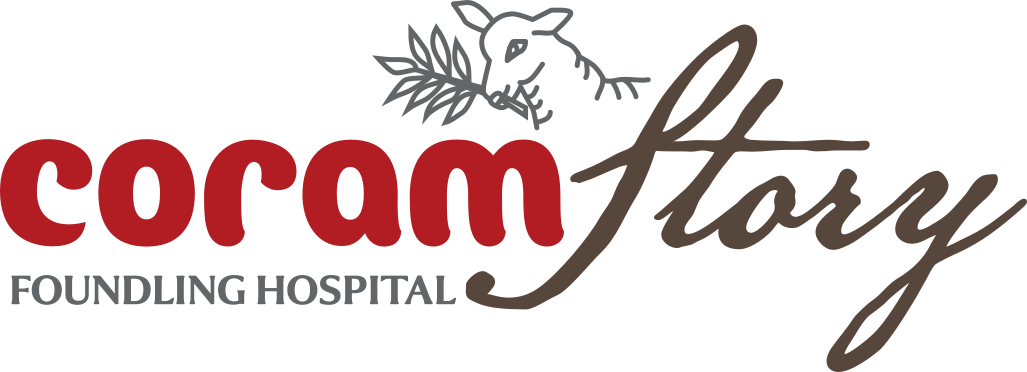Former Foundling Hospital pupil, Coram governor and Hon. Secretary of the Old Coram Association John Caldicott tells his story.
John’s mother
John’s mother was 27 when she became pregnant. After a few months, she lost her job at a laundry and found herself on the street with nowhere to go and no support from her family. John’s mother appealed for him to be admitted to the Foundling Hospital as her only other alternative would have been the workhouse.
John feels a lot of sympathy for his mother’s predicament: “The heartbreak for a girl to have to part with her baby is horrendous. I think it is very difficult for most men to appreciate what it means after a girl has carried the child and given birth. When my mother went back to work after she gave me up at the Foundling Hospital, the girls in the factory where she was working ridiculed her because she’d had a baby ‘out of wedlock’ . In the 1930s and 40s it was dreadful for women, they were ostracised. Nobody wanted to help her.”
Life at the Foundling Hospital
After being admitted to the Foundling Hospital, John was taken to live with a foster family in the countryside until he was 5 years old (it was standard practice for the children to be fostered until the age of 5 to give them some stability and family life before entering the Hospital) at which point, he returned to the Foundling Hospital in Berkhamsted. John recalls that life was very regimented at the Foundling Hospital, partly because there were so many children to look after and that many of the boys went into the army.
John says: “On a typical day, we used to get up early and go into the washrooms, dress in the Foundling Hospital uniform, line up in twos and taken down to dining hall for breakfast and then play outside until lessons started. It had to be really bad weather for us not to go outside. I can remember when, in 1947, the weather was awful, and we had to huddle to keep warm under the colonnades. The bathrooms had six baths in them, and it was two in a bath. The water would be topped up rather than changed. I often say that I was lucky because my surname began with C but the poor chap with the name beginning with W had to wait until last!”
John found some aspects of life at the Foundling Hospital difficult, such as bullying by older boys, a sense of loneliness and the social stigma of associated with being an illegitimate child. However, John feels that his time at the Foundling Hospital made him “extraordinarily independent” and gave him the discipline and drive to succeed in his life and career. Before he left the Foundling Hospital, the headmaster asked him what he wanted to do. John said that he was interested in “how sound came out of a radio” and a sound engineer apprenticeship in Oxford was organised for him. John also remarks that the vast majority of former Foundling pupils went on to marry and have positive lives and careers. John credits his “dear wife” as a “tremendous support”.
Tracing his family history
John traced his birth mother in the late 80s and stayed in contact with her until her death 7 years later. He remembers: “Like all children at the Foundling Hospital, I used to think that my mother was a princess, that she would come to claim me. We fantasised that they were rich, wonderful people.” John remembers meeting his birth mother for the first time as a “strange” experience. “On television programmes such as ‘long lost family’, everybody seems to be very emotional. But with my mother, we shook hands and I said, “how are you?”, and the relationship remained like that during our time together.” John also enjoys a relationship with his half-brothers and said that the family accepted him “with no reservations”.
Life in care today
John believes that it is important to listen to young people in care today to gain their perspectives to find solutions to their problems. He feels that in many ways, young people in care today face more difficulties than he faced in the 1930s due to multiple care placements.
John served as a governor of the organisation between 2008-16 and has had the opportunity to connect with young people in care and share his experiences and listen to them. He says: “It gave me a lot of satisfaction to think if even one of those young children could find a way through their problems as a result of listening to me, then that would be brilliant. Apparently, the children used to ask about me and what I was doing. I learned that some of the young people went on to university which was fantastic to hear.”
Voices Through Time
For John, the Voices Through Time project to digitise Coram’s archives dating from 1739 is very important. “I support the project to digitise Coram’s archive 100%. The archives can give us a picture of what happened all those years ago and the circumstances not just of the individual children and their families but the also the social, political and economic context. All that information needs to be accessible to researchers. From there we can try to find some solutions to today’s problems and that is what Coram is doing.”
John adds:
“Former Foundling pupils are not unique, we need to understand that children in the 30s, 40s and 50s in other institutions and boarding schools had similar experiences. It is by understanding and learning from history and past practices that organisations such as the former Foundling Hospital, now called The Thomas Coram Foundation for Children and known simply as children’s charity Coram, are able to provide an abundance of innovated services to our children today.”

